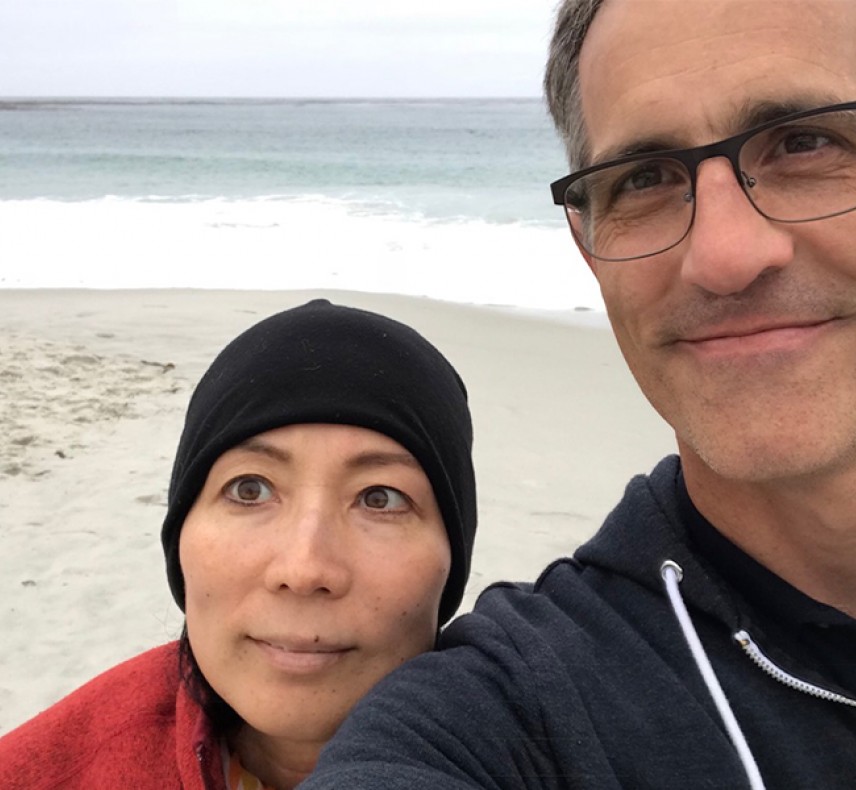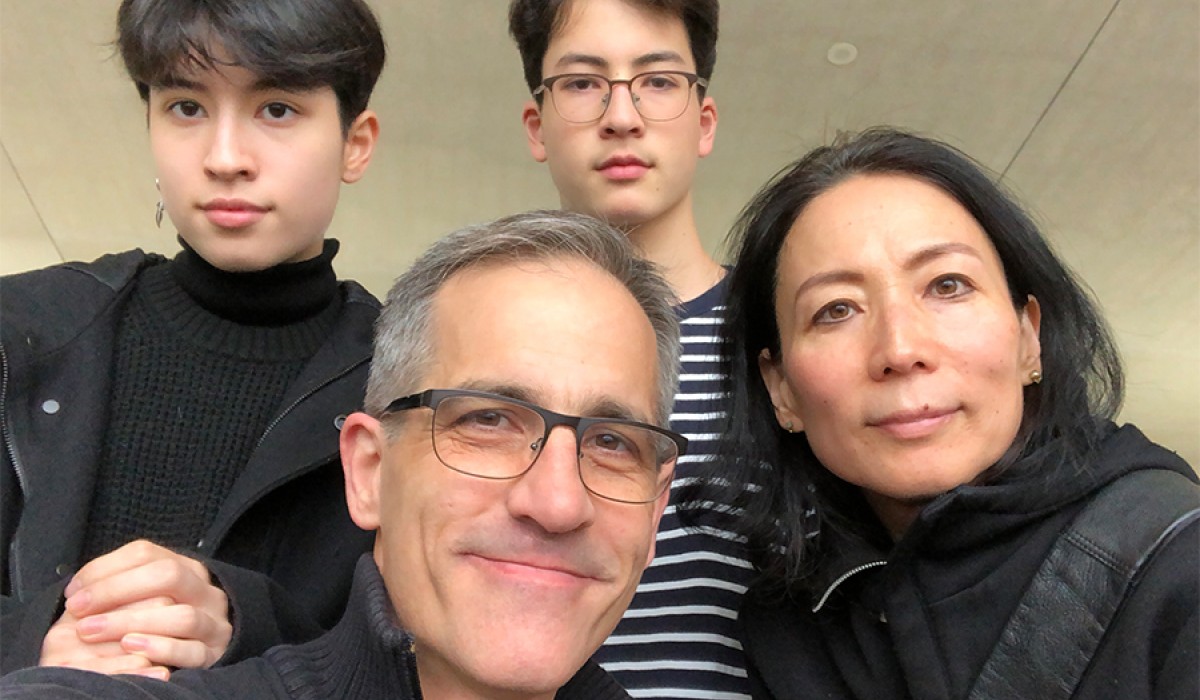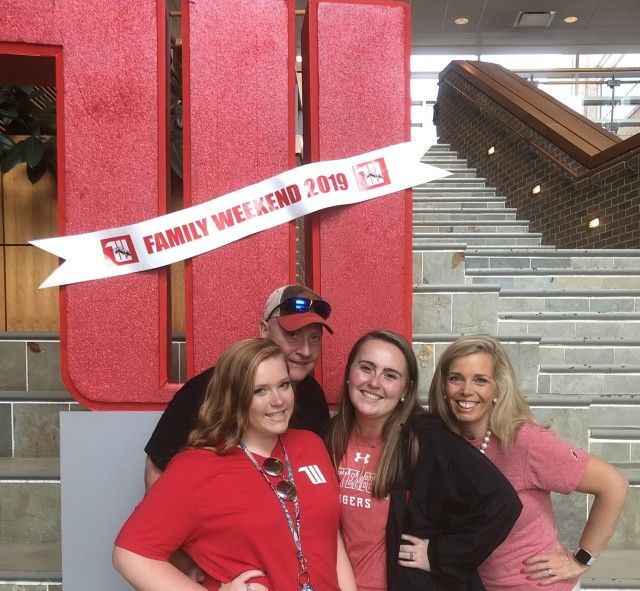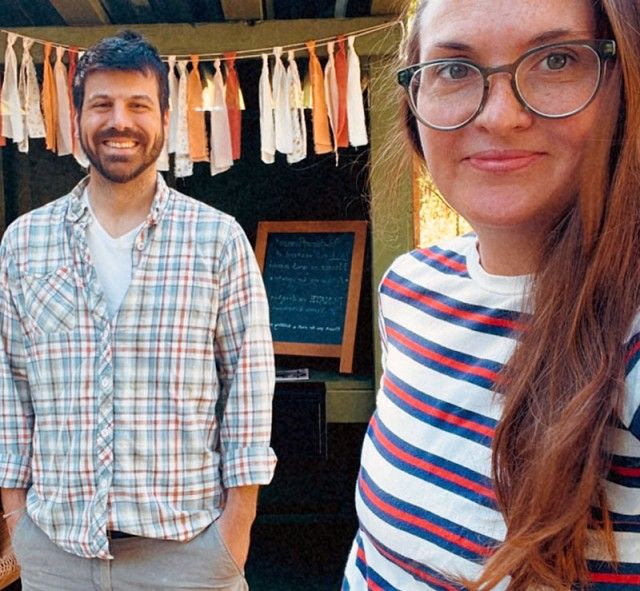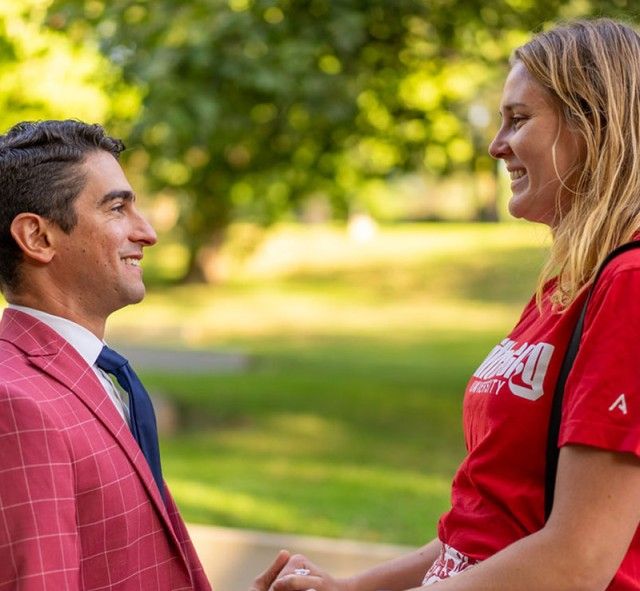Art majors Madoka Yamakawa and Michael Ermarth, Wittenberg class of 1993 and 1991, respectively, found more than just a love of art in Florence, Italy, while attending Studio Art Centers International (SACI). The two found each other during a study-abroad experience. Now two children, two cats, and one dog later, the couple has found a way to mesh their liberal arts experience into careers for themselves.
“The location of our first meeting always surprises people,” said Madoka, who is originally from Kanagawa, Japan. “We met in Florence, Italy, as students attending art school. We now live in Northern Virginia, a suburb of Washington, D.C.”
After graduating from Wittenberg, the pair married, then moved to Japan where Michael helped teach English in rural junior high schools working for the Ohio-Saitama English Teaching Program (OSET). Later, they moved to Toyko and worked in the media industry – Michael as a graphic designer and Madoka as a journalist.
“This was a fantastic experience during which I learned as much about Japan and Japanese culture as I could. After we moved to Tokyo, I began my career as a graphic designer with a small Japanese advertising firm working entirely in Japanese,” said Michael, who was an active member of the International Club (now American International Association), the Caving Club, and the Outdoor Club, during his time at Wittenberg.
“I credit my liberal arts education and my Wittenberg experience for my ability to even imagine doing this, and for my success at it,” he added. “Since that first career-oriented job in Tokyo, I have worked in marketing, advertising, publishing, television, web development, and most recently in health communications at the U.S. Food and Drug Administration (FDA), where I produce graphics and multi-media for the FDA website and social media. My liberal arts education and Wittenberg experience continue to guide me personally and professionally.”
He chose Wittenberg for its liberal arts approach, its size and its culture - all of which he was familiar with thanks to his late grandmother, Margaret Ermarth, who was a beloved Wittenberg history professor, and his parents, Leila and Fritz, who met while attending Wittenberg.
“I entered Wittenberg assuming that I would become a painter and sell my art in galleries,” he said. “Wittenberg helped me understand that there are many ways to be creative, to make art, to make a living, and to make meaningful contributions to society. I did not imagine my current job when I graduated from Wittenberg so many years ago. But I did know that Wittenberg would give me the lifetime skills and adaptability I would need to contribute to an ever-changing world.”
During her time at Wittenberg, Madoka focused on ceramics, spent hours in the art building (Koch Hall), the pottery studio, in the dark room developing photography, and worked on lithography. Yet, her career path went a slightly different direction.
“After we moved to Japan, I started working for Fuji Television, a major Japanese TV station in Tokyo,” Madoka said. “I worked in the PR section for corporate branding and advertising. It was very fun, but I later requested an internal job transfer and switched to the news section. I became a photo-video journalist and covered a wide range of topics, such as social and political events, legal and finance, natural disasters, sports, documentaries, and interviews, both in and outside of Japan. The work was very exciting and a wonderful learning experience, but it was demanding, and I took a break from work when we decided to start a family.
“I really enjoyed being a full-time parent,” she added. “I had always desired to spend maximum time with my children and witness their everyday growth. I didn’t want to miss their first step, first word, and I was always curious about raising multi-lingual children so their growth has been interesting and stimulating, even after they became teenagers. I have learned a lot from them, and they have shown me a world I have never imagined.”
Madoka started chapter two of her work career as a linguist, once their children grew up.
“My first work was teaching Japanese to mostly Navy officers who were sent to Japan, including Japanese language assessment, research and translation,” she said. “It gradually brought some unique opportunities, such as serving on Navy ships as a cultural liaison. I designed a program for language development and cultural awareness for Navy personnel and worked on board. It was very challenging, but a rewarding experience.”
When the couple moved to Washington, D.C., Madoka worked at a think tank before accepting her position at Mizuho Bank, part of Mizuho Financial Group in D.C.
“I learn something new every week and though I do have so much to learn, it has been a great combination of what I have experienced throughout my careers,” said Madoka, who received her master’s degree in education from George Mason University with a concentration in curriculum and instruction on multi-lingual education. “It took me a long time to find out what I really wanted to do. Not only my skillset has developed, but I am more mature now and know my abilities and competitiveness, along with my needs. I am thankful for my liberal arts education that pushed me to learn various subjects, outside of my major. Had I only attended art classes, I think I would have been limited with a narrower view, and less rounded (though I don’t mean I am perfectly well-rounded yet), and I would not have discovered what my talents are. I couldn’t imagine my career path upon graduating from Wittenberg. I certainly wasn’t thinking about public relations, journalism, being an educator, nor working for a bank. But in a way they all relate; all are in communication with others and gathering and sending information.”


